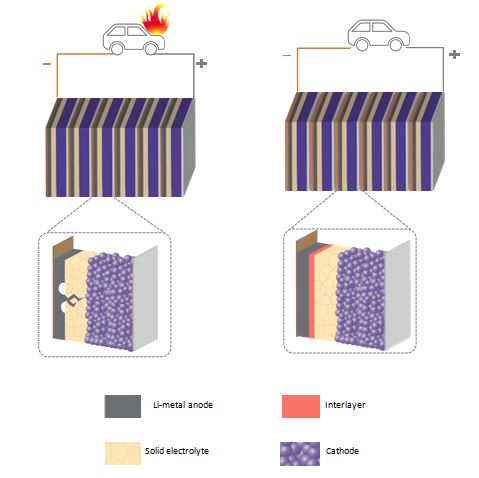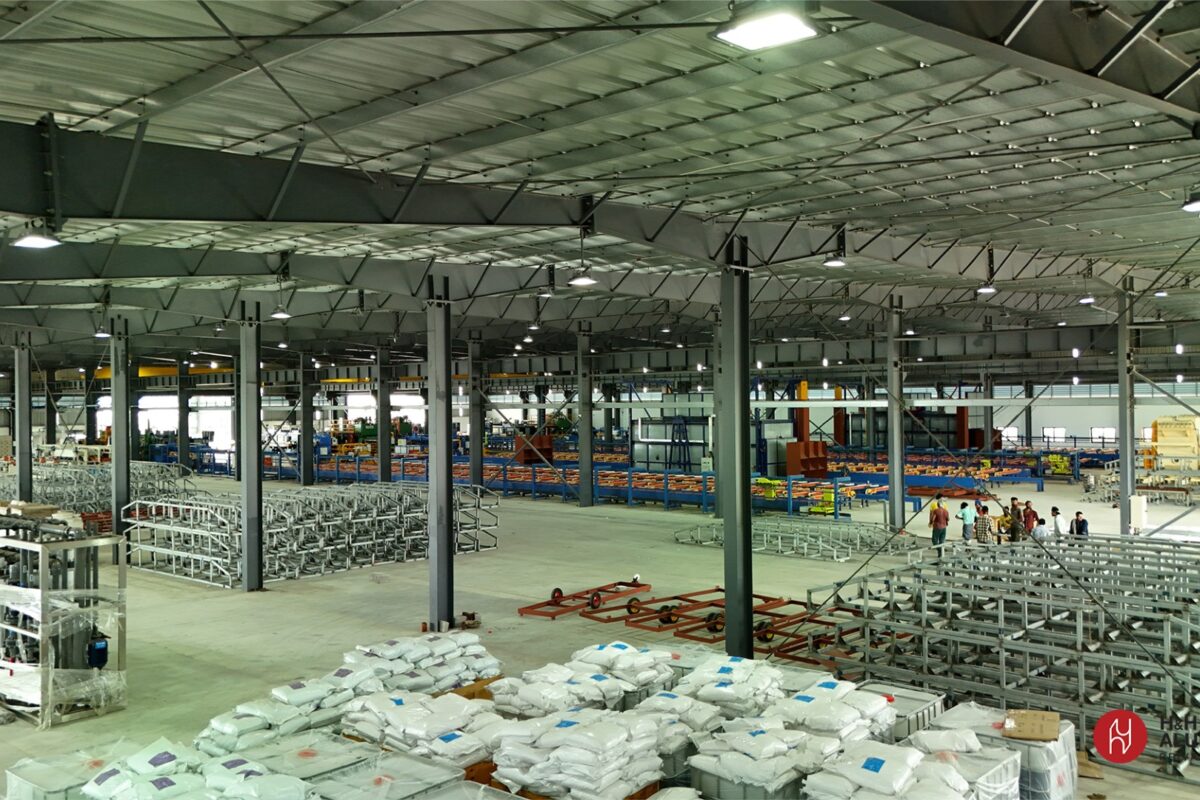Solid-state Li-ion batteries with lithium anodes offer higher energy densities and are safer than conventional liquid electrolyte-based Li-ion batteries. However, a long-standing challenge with solid-state batteries is the growth of lithium dendrites across the solid-state electrolyte layer that leads to the premature shorting of cells and limits their practical viability. The dendrite growth accentuates during fast charging.
Researchers from the Indian Institute of Science, Bangalore, have come up with an innovative interfacial engineering approach to enable fast charge-discharge rates in solid-state lithium metal batteries. They have found that nanoscopic refractory metal layers like Tungsten could improve the performance of these batteries by improving dendrite growth tolerance in solid-state electrolytes.
The researchers performed extensive fundamental electrochemical measurements over several hundreds of solid-state lithium half cells with metallic interlayers between a garnet-based lithium-ion conductor and lithium. After nano-characterization, they realized that interfacial void growth precedes dendrite nucleation and growth. They identified that the growth of lithium voids during discharge leads to dendrite growth during charge.
The team comprising Vikalp Raj, Victor Venturi, Varun R Kankanallu, Bibhatsu Kuiri, Venkatasubramanian Viswanathan, and Naga Phani B Aetukuri found that Li-ion currents were concentrated at the edges of the microscopic voids. The currents at these edges were around 10,000 times larger than average currents in the cell. Hence it is necessary to impede void growth to prevent dendrite growth.
To delay void growth, the researchers experimented with an ultrathin layer of refractory metals between the lithium anode and the solid electrolyte. They noted that tungsten is an ideal candidate to impede lithium vacancy motion due to its low solubility for lithium and therefore delay void growth. They collaborated with researchers from Carnegie Mellon University to corroborate their work through computational methods.
The research was carried out under the collaborative energy storage platform between the Indian government’s Department of Science and Technology and the IISc. The Energy Storage Platform on Supercapacitors and Power Dense Devices platform aims to develop and engineer techno-economically viable, power-dense electrochemical energy storage solutions through active collaboration and accelerated technology development.
The team now intends to build on this advance to develop full solid-state cells that could enable charging in less than an hour and offer up to 1,000 or more cycles while withstanding high temperatures of 45 degrees Centigrade or higher.
This content is protected by copyright and may not be reused. If you want to cooperate with us and would like to reuse some of our content, please contact: editors@pv-magazine.com.









1 comment
By submitting this form you agree to pv magazine using your data for the purposes of publishing your comment.
Your personal data will only be disclosed or otherwise transmitted to third parties for the purposes of spam filtering or if this is necessary for technical maintenance of the website. Any other transfer to third parties will not take place unless this is justified on the basis of applicable data protection regulations or if pv magazine is legally obliged to do so.
You may revoke this consent at any time with effect for the future, in which case your personal data will be deleted immediately. Otherwise, your data will be deleted if pv magazine has processed your request or the purpose of data storage is fulfilled.
Further information on data privacy can be found in our Data Protection Policy.